Education
If all adults completed secondary school then world poverty would be halved. But 740,000 children of school going age are not in school in Zambia.
There are many reasons for this; from lack of money to pay for fees and uniform to not having proper meals; from entrenched stigma towards physical and mental disability, child marriage and child labour, to a lack of adequate school buildings. ZOA works with grassroots partners to do everything we can to get children in the communities we work with into school, and crucially keep them there, to make sure they can have a childhood and help them change their future.
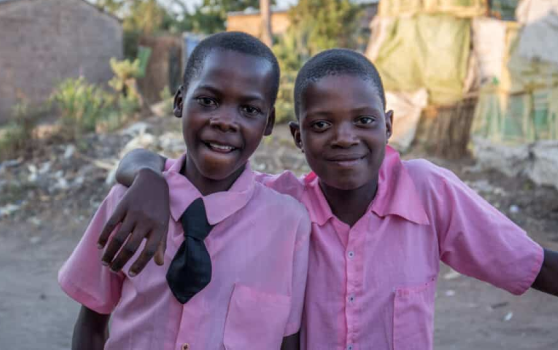
Paying school fees and other essential school kit
Working with our Zambian community partners we pay the school fees for children to attend community schools (who are not state funded) and help schools provide uniforms, shoes, books and stationary supplies to the most vulnerable pupils both in primary and secondary school.
In 2024 we are helping 141 children go to primary school and 304 go to secondary school.
ZOA asks families or guardians to contribute a small amount towards the costs of each child we support, based on what they’re able to contribute. We also ask students and their families or guardians to demonstrate their commitment to their child’s education by signing annual Certificates of Commitment and we conduct termly reviews of progress.

Nutrition
Providing children with an education to help them rewrite their future is our mission. But paying school fees, providing uniforms, books and stationary isn’t enough to keep children in school and learning effectively.
We look at the whole package – from helping set babies up for life by reducing the physical and mental stunting associated with chronic malnutrition, providing nutritious school meals and supplying emergency food parcels when unforeseen events strike.
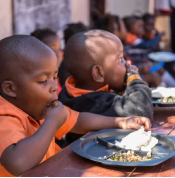
Inclusive education
Disabilities are not always visible and can be both a cause and consequence of poverty.
In Zambia there is huge stigma attached to both physical and mental disability and many children with disabilities are hidden away by ashamed families and don’t get the chance to go to school.
In a country with high levels of poverty this represents a considerable challenge for the Government and family networks to provide the necessary support. The services that are available are inaccessible, under-resourced or overly-centralised. This puts children with disabilities at even more of a disadvantage when it comes to schooling. That’s where we step in.
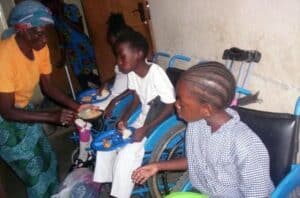
Keeping girls in school
Around the world many girls miss school because they can’t afford sanitary products. Zambian girls we work with miss 30 days of school each year – half due to their period. We know that girls in rural communities who are educated are less likely to contract STIs or HIV/AIDS, tend to marry later, have smaller, healthier families and are more likely to ensure their own children are educated too, so it’s crucial we help girls stay in school.
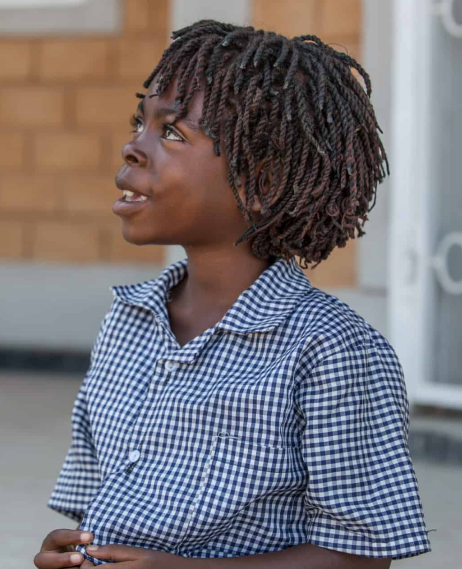
Tertiary education
Education is a proven route out of poverty and gives children the potential to transform not just their lives but the lives of their family. For example, each extra year of education raises lifetime earnings by around 10%.
We want to break the cycle of poverty and improve social mobility in Zambia. We aim to equip particularly disadvantaged students with vocational skills to help them access good jobs in professions like teaching or in healthcare, enabling them to earn an income that could lift their entire family out of poverty.
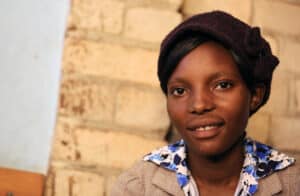
Infrastructure projects
We work with our partners on an individual basis to try and make sure obstacles to children’s learning are removed. For example we recently helped Twatasha School, an inclusive education pioneer in Kafue, a third of its students live with disabilities.
We worked with Twatasha to construct an accessible boarding house so that children who cannot manage the daily commute to school have somewhere to stay during the school week – 40 children with disabilities now have somewhere safe and secure to stay. We also constructed a new Physiotherapy Centre at the school, so children can access their therapy easily helping them to participate in school more easily.

Paying School Fees
£58 can kit a child out with everything they need for school.
£112 can pay the school fees for one year for a primary pupil.
£108 can pay the school fees for one year for a secondary pupil.
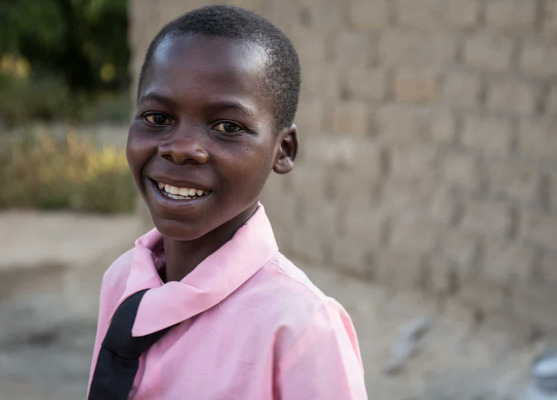
Supporting children to go
to school
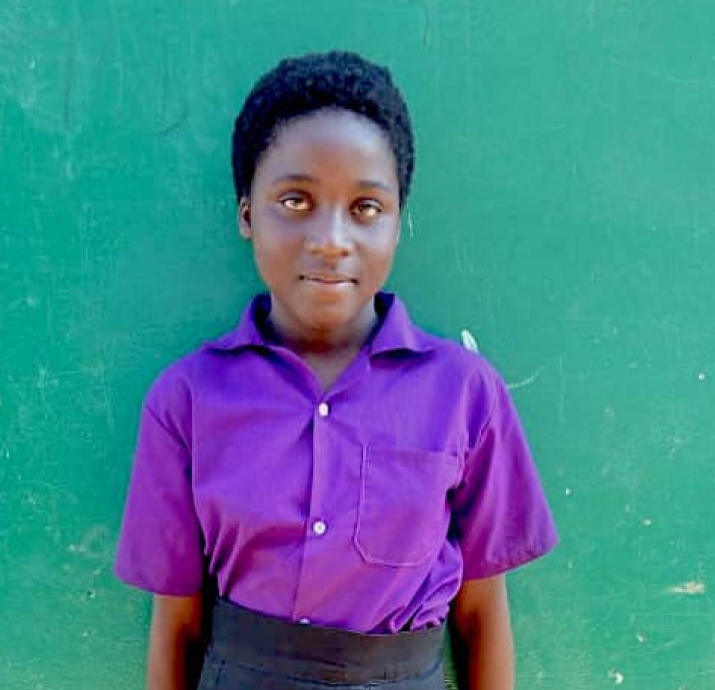
Juliet, 12 Years Old
“I live with my brother and sister. Only my mum is around because we lost our dad when I was eight. My mum buys food for us after doing some piece work like washing clothes for people. My biggest challenge is seeing my mum facing hardships alone to make sure she can buy food for us.
School is a kilometre away and I walk to school. School helps me to learn things that I didn’t know and how to take care of myself. I used to have [hunger] stomach pains which affected my academic performance, but I don’t face challenges at school now because I receive a school meal and my uniform and my fees are being paid. Having received help has helped me to start school, receive uniforms that mum couldn’t afford and I’m able to have the correct meals at school. It can make someone like myself have a better life.”
The importance of mental wellbeing
Diana, 16 Years Old
“If you ask me if there is anything that makes me happy, I will say nothing makes me happy. There are a lot of things that make me sad.
Firstly my mother, her abusive language, character and knowing that she is HIV positive. At times she buys food for my young brother but not me.
My mother was raped then she conceived me. This hurts me because I feel this is the reason why she hates me so much. I do not know who my father is.
All this hurts me a lot and made me at one point think about not wanting to live anymore.”
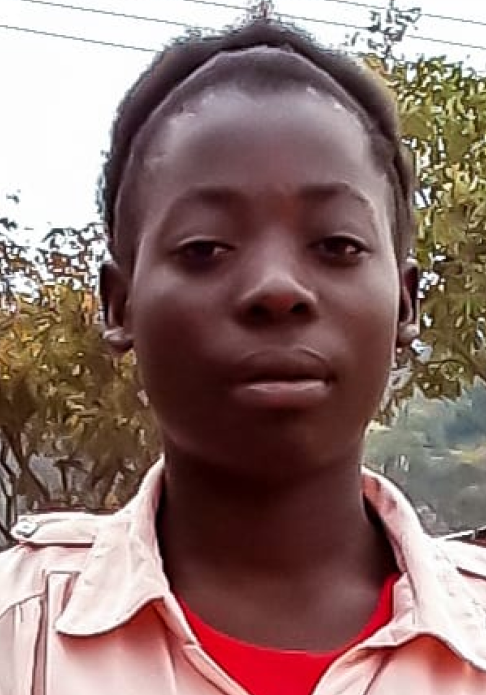
Supporting tertiary students
Mike, ZOA-Graduate
“My parents passed away when I was eight. I faced a lot of challenges but with the help of others I overcame these. I was supported by ZOA from the age of 15 at Hope and Faith School. It felt like I had parents somewhere doing their best for their child.
Teaching is my passion. I received my degree in Secondary Education at the School of Natural Sciences, Chemistry and Philosophy.
My ambition for the future is to complete a PhD and help others.”
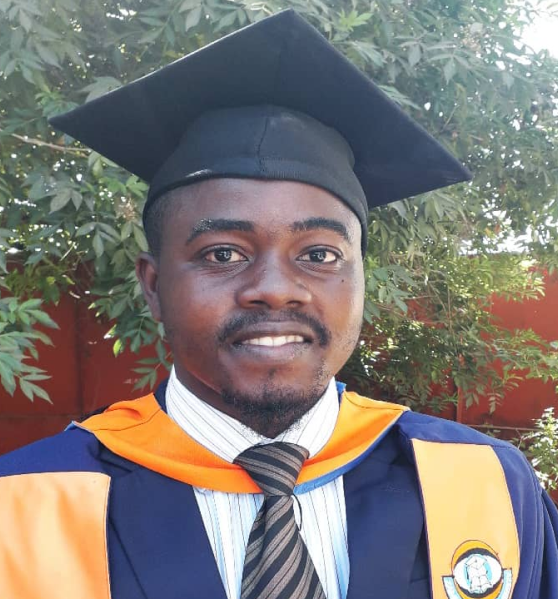
Keeping girls in school
Diana, 12 Years Old
“I was 12 when I started my periods. I was afraid and I didn’t know what to do. I thought there was something wrong with me and I stopped going to school. I used to miss class until my period was finished because I didn’t have pads.
The menstrual hygiene training taught me about periods, good hygiene practices, how to use reusable pads and that I can still go to school.
The difference is that now my attendance in class has improved.”
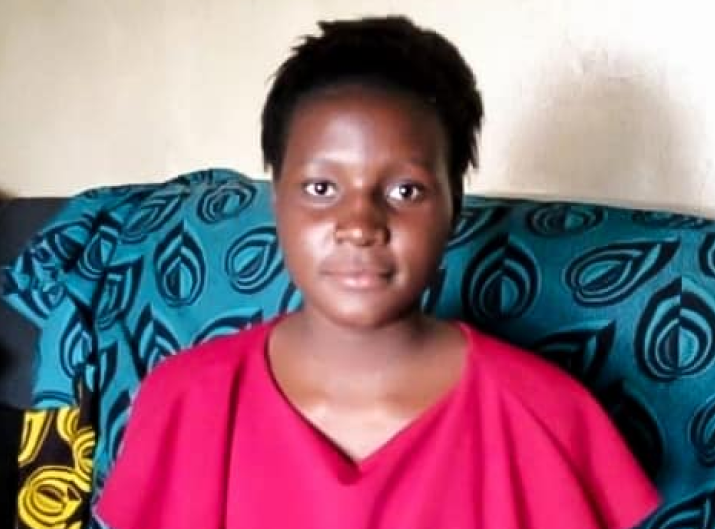
Help change a child's future
Your help can support children through primary and secondary school, provide nutritious school meals so pupils aren’t learning on an empty stomach and support those that can through tertiary vocational training. We provide a holistic approach so also provide mental health support and other inputs where needed.
